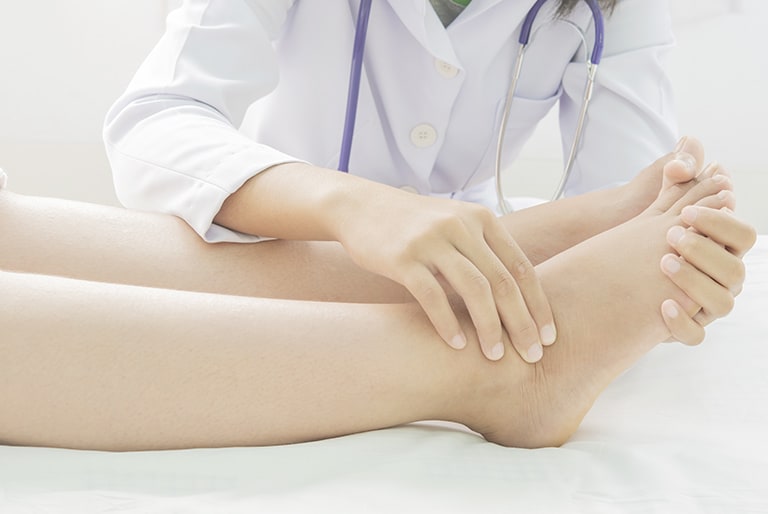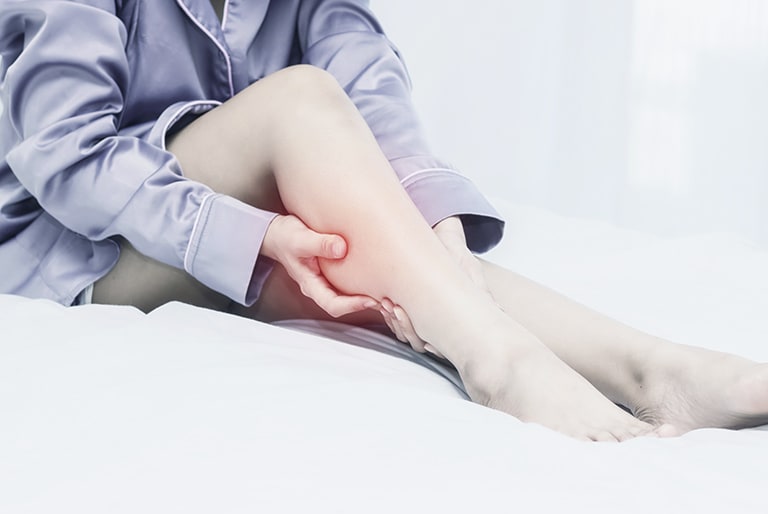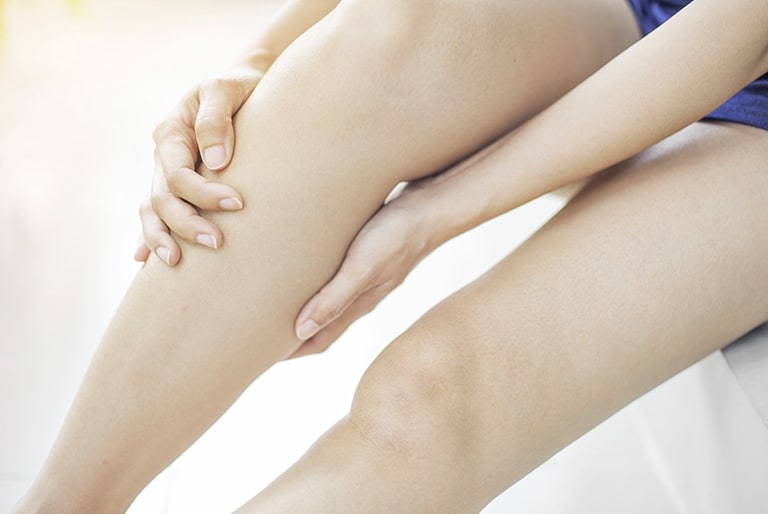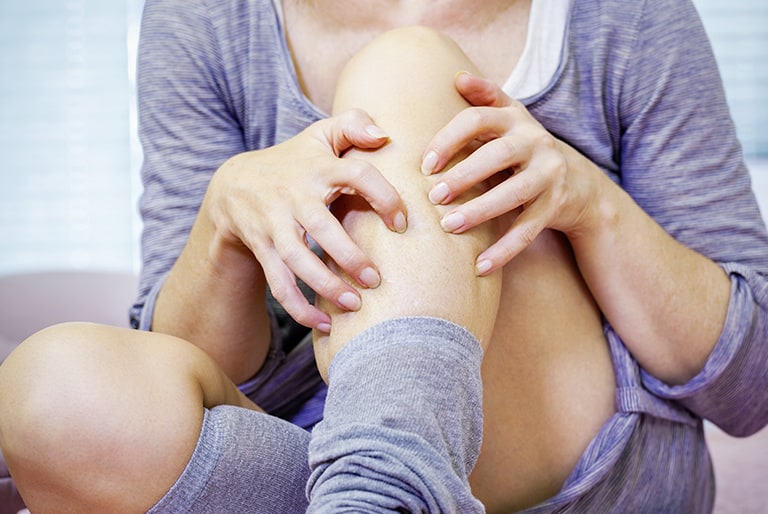Swollen legs
It is not a rarity in summer. Instead of strolling around with slim fetlocks, many suffer from swollen legs, which get thicker as the day goes on. The causes can be harmless – or an indication of a venous disease.

Where do swollen legs come from?
Whether harmless or diseased – there are various causes of such oedemas in your legs:
- Standing or sitting: prolonged standing or sitting is a typical cause of swollen legs. Because fluid collects over a longer period in your legs, at the lowest area in your body. If you put your feet up, the swelling usually decreases, because the fluid can flow back.
- Heat in summer: the high temperatures in summer are a real challenge for many people. Also for your blood vessels, which expand in the heat and can lead to heavy, swollen legs.
- Excess weight: people who are overweight often have a weakened venous function, which causes their legs to swell during the day.
- Venous disorders: in many cases, a venous disorder lies behind the swollen legs. Because when your blood builds up because it can no longer flow sufficiently well enough back towards your heart, your legs and ankles get thicker.
- Lymphatic diseases: a functional disorder of the lymphatic vessels can lead to water in your legs and manifest as swollen feet.
- Metabolic disorders: diabetes mellitus and other metabolic disorders often lead to water retention in tissue.
- Hormonal changes: in addition to that, hormonal changes during a pregnancy, during the menopause or due to a metabolic disorder can encourage water retention.
- Diseases of the organs: if you have a disease in your heart, kidney, liver or thyroid gland, that could also manifest as swollen legs.
- Lipoedema: diseased fat deposits in your tissue make your legs swell. But your feet are not affected by it.
- Medicines: various medicines encourage temporary water accumulation in your tissue and can therefore also lead to swelling in your legs. Usually, the problem disappears once you have stopped taking the medicine. You really must discuss this with your doctor. There may be alternatives which do not lead to swollen legs.
- Alcohol consumption: excessive alcohol consumption expands your blood vessels and not only leads to swollen legs, but also to swelling in your arms and your face.
If only one leg is swollen, it usually means that there is a venous disorder or defective circulation in your arteries. If one leg on one side suddenly swells up, with pain and warming in the leg, you should think of vein thrombosis. In such a case, you should immediately visit a doctor.
If both legs are swollen, it usually is the result of inactivity or organ disease. In any case, you should find the cause in order to detect any possible disease early enough, and to start an appropriate therapy.
How dangerous are swollen legs?
People who now and again notice swollen legs after a long day on their feet can tackle them easily with simple household remedies. If, however, swollen legs regularly occur, you should be careful. Because a build-up of blood or water in your legs is often a first indication of venous insufficiency or a cardiovascular disease. If you also get unsightly spider veins or varicose veins, it would seem that you already have a venous disease.
If you ignore such a disease or do not detect it, you could have serious consequences, such as chronic venous insufficiency, vein thrombosis or vein inflammation.
Call an ambulance if your legs swell up suddenly and other symptoms occur, such as shortness of breath, heart palpitations, chest pain and circulatory problems! It could be pulmonary embolism which must receive immediate medical attention. The same is true if only one leg swells up. If your leg also feels warm to the touch, it is an indication of deep vein thrombosis.


